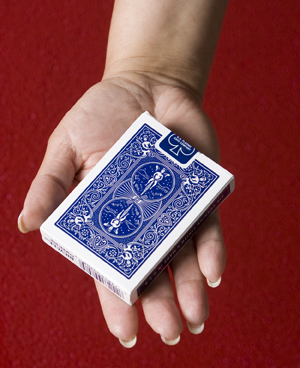Kidney Disease: Getting the Right Amount of Protein
Your body needs protein to build and repair muscles and bones along with other important body functions. But as the body uses protein, a waste product (blood urea nitrogen, or BUN) is made. If your kidneys can’t filter wastes from your blood normally, the BUN level increases. If the level gets too high, you can become sick. Because of this, you need to control the amount of protein you eat each day. Use this handout to help you.
 |
| One portion (3 to 4 ounces) of fish, chicken, or red meat is about the size of a deck of playing cards. |
Measuring protein content
You know how many grams of protein to eat, but most food portions are measured in ounces. Use the chart below to help determine the protein content of some common foods.
Protein content measurements
|
Protein source
|
Amount in ounces
|
Amount in grams
|
|
Chicken breast
|
3 to 4 ounces
|
21 to 28 grams
|
|
Chicken thigh
|
2 to 2.5 ounces
|
14 to 18 grams
|
|
Fish
|
3 ounces
|
21 grams
|
|
Pork chop
|
2 to 2.5 ounces
|
14 to 18 grams
|
|
Roast beef
|
3 ounces
|
21 grams
|
|
Steak
|
3 to 4 ounces
|
21 to 28 grams
|
|
Hamburger
|
3 to 4 ounces
|
21 to 28 grams
|
|
Eggs
|
1 egg
|
7 grams
|
|
Cheese
|
1 ounce
|
7 grams
|
|
Most beans
|
4 ounces
|
7 to 10 grams
|
|
Tofu
|
2 ounces
|
5 grams
|
|
Most nuts
|
2 ounces
|
5 to 8 grams
|
If you eat too much protein
Eating too much protein may cause the following:
-
Nausea or vomiting
-
Tiredness (fatigue)
-
Mental confusion
-
Increased potassium levels
-
Increased phosphorus levels
-
Increased time on hemodialysis
-
Risk of speeding the loss of kidney function
If you eat too little protein
Eating too little protein may cause the following:
-
Muscle loss and weakness
-
Tiredness
-
Weight loss
-
Slower wound healing
© 2000-2024 The StayWell Company, LLC. All rights reserved. This information is not intended as a substitute for professional medical care. Always follow your healthcare professional's instructions.